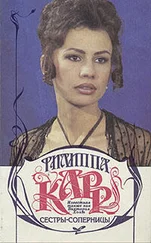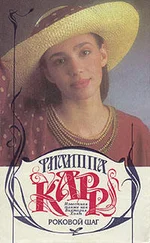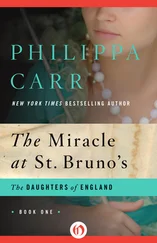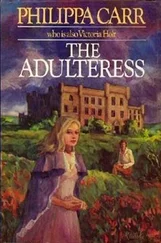"My dearest child," he said, "let us pray that this will be so.”
I was touched that he, whose sympathies were with poor Queen Katharine, could now be sorry for Queen Anne Boleyn.
"Poor soul," he said.
"Many have suffered because of her, Father," I answered.
"Yes, indeed," he replied sadly. "Many have lost their heads for her. Who knows when she will be in like case?”
"But she is beloved of the King.”
"So were others, my child, and what of them when they cease to inspire that love?
Many now rest in their quiet graves. When my time comes I should like to lie in the Abbey burial grounds. I spoke to Brother John about it. He thinks it can be arranged.”
"Father, I forbid you to talk of death! And it all began by talking of birth!”
He smiled rather sadly. "There is a link, dear child. We are all born and we all must die.”
A few days later the royal child was born. We heard that the King was bitterly disappointed, for the child, though healthy, was a girl.
There was rejoicing at her christening and she was named Elizabeth.
"The next one," everyone said, "must be a boy.”
Christmas came with its festivities: mummers, carols, feasting and the decorations with the holly and the ivy. We were growing up and the following spring I heard Elizabeth Barton's name for the first time because everyone was talking of her; she was known as the Holy Maid of Kent and she had prophesied that if the King put away Queen Katharine and set up Anne Boleyn as his Queen he would soon die; and now that he had done so, many people were certain that he had not long to live.
Brother John and Brother James came to see my father and the three of them walked about the garden in earnest conversation because they thought the Holy Maid could make the King realize his error. It might well be a sign from heaven, said Brother John. I don't know what my father felt because he never talked to me about these matters. I realize now that he was afraid that I might, in my innocence, say something that would incriminate not only him but me, for young people could be deemed traitors.
I understand now that the King was swept on by his desire for the woman who had fascinated him and his wariness with the Queen who no longer did. His senses were in command but he greatly feared the wrath of God toward sinners. Therefore he must convince himself that he was in the right. He must believe -what he said so constantly-that it was not his senses which dictated his actions but his conscience. He insisted that Queen Katharine's previous marriage to his brother Arthur meant that she was not legally his wife because the marriage had been consummated, although the Queen swore it had not been. The reason his marriage had failed to be blessed with children-except one girl, the Lady Mary-was due to God's displeasure, said the King. It was not his desire for Anne Boleyn which had made him demand a divorce from Katharine. It was his duty to provide England with a male heir. The new Queen had now one daughter and had proved herself fertile; the next child would be a son.
So the King reasoned and there was no logic which could defeat his conscience. This I learned later, but at the time I forgot the brooding sense of insecurity for hours at a stretch.
My mother did too. She was a gentle, pliable woman, who perhaps because she was so much younger than my father relied on him for everything and had few opinions of her own; but she kept our house in order and our servants were devoted to her; moreover she was becoming known as one of the best gardeners in the south of England. She was always excited when new plants were introduced into England; the musk rose had now arrived; and she grew that side by side with the damask. Corinthian grapes too had been brought from the Isle of Zante and she planned a vinery which gave her a great deal of pleasure.
She was, I gradually learned, the sort of woman who believes that if she shuts her eyes to unpleasantness it ceases to exist. I was fond of her and she doted on me; but I was never close to her as I was to my father. My greatest pleasure was to be with him, to walk with him down to the river or through the orchards and as I was growing older he could talk seriously to me, which I think gave him great pleasure.
It was at the time when Elizabeth Barton became prominent that my father did talk to me.
I remember the day she was executed he put his arm through mine and we walked down to the river. He liked this way better because it was open lawn and we could talk without being overheard as we might be in the orchard or the nuttery.
He told me the Holy Maid had been a servant to a member of Archbishop Warham's retinue and how she became ill and subject to fits. This state had turned into trances and she had declared herself to be under deep spiritual influence.
"It may well be that she was used," he said, "poor soul. It may be that she spoke half-truths, but as you know, Damask, she has uttered against the King; she had prophesied his death if he should put Queen Katharine from him.”
"Which he has done, Father.”
"And taken to him Anne Boleyn.”
"Why shouldn't we forget it?" I said. "If the King has sinned it is he who will be called upon to answer for it.”
My father smiled. "Do you remember, my child, when you and I saw the once-great Cardinal sail by with the King?”
"I shall never forget it. I think it was the time I first began to notice things.”
"And I said to you... what did I say to you? Do you remember?”
"You said: We are not alone. The misfortune of one is that of us all.”
"What a clever child you are! Oh, Damask, I shall enjoy seeing you a woman... if I live as long.”
"Please don't say that. Of course you are going to live to see the a woman. I am almost that now and we shall always be together.”
"And one day you will marry.”
"Do you think that will part me from my father? Any husband who wished to separate me from you would not find much favor with me.”
He laughed. "This house and all I possess will be for you and your children.”
"But it will remain yours for many many years to come," I insisted.
"Damask, don't lose sight of this: We live in troublous times. The King has tired of one wife and wanted another. That may concern us, Damask. I want you to be prepared.”
He pressed my hand. "You are such a little wiseacre that I forget your youth. I talk to you as I might talk to Brother John or Brother James. I forget you are just a child.”
"Kate constantly reminds me of it.”
"Ah, Kate. She lacks your wisdom. But one could not expect two such clever people in one household.”
"You are a fond parent," I said.
"I admit it," he told me. And he went on: "This day they are taking the Maid of Kent to Tyburn. She will be executed there.”
"Just for a prophecy?”
"For prophesying what the King does not wish to be prophesied." He shivered and went on: "Enough of talk of death. Let us go and see how your mother's musk roses are faring.”
The Maid of Kent was dead. On the scaffold she had admitted her guilt.
"I am a poor wench without learning," she had said. "I have been puffed up by the praises of learned men. They made me pretend to revelations which would be useful to them.”
The learned men who had supported her were such as Sir Thomas More and Bishop Fisher.
Because I was so young I was only vaguely and intermittently aware of the tension all about me. I could not at that time accept the fact that the world outside our household was of any great importance to us. My father aged considerably in the months that followed the new Queen's coronation. He used to row up the river to Chelsea and visited Sir Thomas More who was a very well-known gentleman. He had been Lord Chancellor before his resignation, having taken the post vacated by the great Cardinal.
Читать дальше







